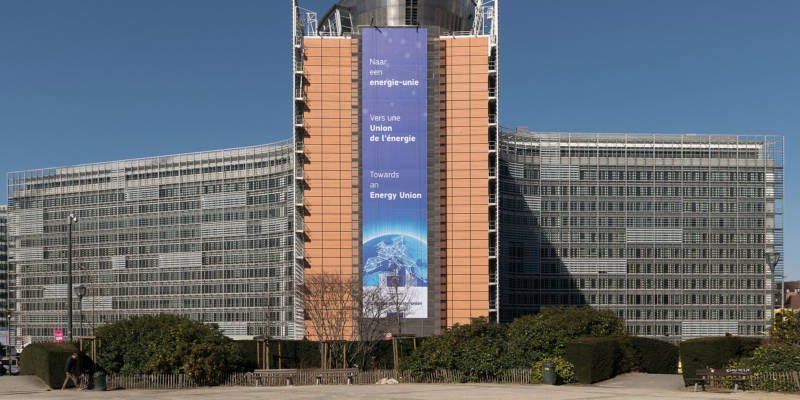As the Juncker Commission’s term is soon coming to an end, the race to become the new President of the European Commission is open and intense. As the headlines, there are two candidates: Manfred Weber of the EPP (the European center-right group, majority in the EU Parliament) and Frans Timmermans of the socialist S&D group. In the line-up, there are the representatives of the 3rd and 4th groups in the Parliament: respectively Jan Zahradil for the ECR conservatives and Margrethe Vestager, currently the Commissioner for Competition, for the ALDE liberals. If it seemed at first that there would only be these four candidates in the race, it turns out that a fifth contestant has become part of the process: Michel Barnier, the Frenchman who is the current Chief Brexit Negotiator for the EU.
Michel Barnier as the voice for climate action
This new contestant is particularly interesting: while all the candidates are defining their priorities and key topics in their campaigns, migration for Manfred Weber or social issues for Frans Timmermans, it is on climate issues that Michel Barnier is making his voice heard. In an article published in the online journal Project Syndicate, Michel Barnier sets out his priorities for Europe as the following:
- Achieving carbon neutrality in Europe by 2050 to limit global warming to 1.5 ° C;
- Applying strict CO2 emission limits to cars, public transport and commercial sea and air transport;
- Collaborating with the European automotive industry to make Europe the most advanced continent in regards to electric vehicles by 2030;
- Unlocking massive investments for the mobility sector, energy efficient buildings, renewable energies and new technologies such as hydrogen batteries.
European climate advocates would greatly benefit from a new European Commission President that would be sensitive to climate issues and aware of the key role of European industries and of innovation in achieving carbon neutrality. A President with this mindset would be able to drive ambitious choices and an effective implementation of European climate projects. In addition, a French President of the European Commission would undoubtedly create a more natural and easier contact between our industry and the European executive. But does Michel Barnier really have a chance in this race?
A card to play for Michel Barnier
As always with the European Union, the process of appointing the President of the Commission is tortuous and ever-changing. In theory, since the Lisbon Treaty has been adopted, The European Council votes by qualified majority for a nominee for the post of President, “taking account of the latest European elections”. This proposal is then put before the Parliament which must approve or veto the appointment. With this process not being the most straightforward to say the least, a shift occurred during the 2014 appointment, which brought on the system of “Spitzenkandidat”.
In this system, the various groups of the European Parliament nominate their champion and the champion of the group arriving at the top of the European elections gets appointed as the new President of the Commission. If this system was to be followed in 2019 it would most likely lead to Manfred Weber or Frans Timmermans becoming the new President, leaving no chance for Michel Barnier who is not the champion of any group.
But the Spitzenkandidat system is very contested. Not only does it rely on an abusive interpretation of the legislative texts but in addition, with the looming Brexit that could upset the composition of the Parliament at any time, the legitimacy of the system is becoming very questionable. In this context, Member States could reclaim their role in the nomination process and Michel Barnier, who enjoys the support of the presidential majority, would then clearly have a card to play. That is one more reason for France and for the energy and climate actors to stay tuned on what goes on in Brussels in the months to come.







